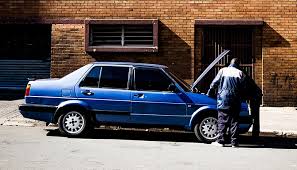If your car runs out of oil, it could be a very costly problem. Oil is what keeps the engine lubricated and makes sure you are getting optimal fuel efficiency. If you don’t have enough oil in your vehicle, then the parts will grind together which can lead to major repairs or even an engine that has to be replaced entirely!
This blog post will give you some quick tips on how to avoid running out of oil in your vehicle.
What can happen if my car Runs Out of Oil?
There are a few things that can happen if your car is low on oil.
First, you might hear noises coming from your engine. Or, the warnings light on the dashboard of your car will usually start flashing to notify you about problems with your engine lubrication system.
When this happens, it’s best to pull over in a safe location and call a tow truck. If you’re unlucky, the engine will seize up before you get a chance to do that!
If your engine seizes while driving, then there’s a good chance the car is going to end up in a ditch or wrapped around a telephone pole. In short, running out of oil can be very dangerous.
If you don’t pay attention to your oil, then your engine will eventually run out of it. This is why it’s important to monitor the oil level in your vehicle and top it off when necessary.
It’s also good practice to check the oil every time you fill up on gas, but make sure that you don’t overfill the oil tank!
The easiest way to avoid running out of oil is not to let your engine run on it in the first place.
How to Avoid Running out of Oil?
Whenever you start up your engine, the oil needs to get circulated throughout the engine. There are several ways it can do this:
It can move using a pumping system or it could be pumped around with the help of a distribution system. These distribution systems can be either a managed one or an oil pump on the engine. Your vehicle might have both of these types of oil distribution systems, but it uses an oil pump on your engine more than anything else.
Your car’s oil cap will also need to be tight and sealed before you drive off, so make sure you screw it back on after you check the oil level!
You should always wait for your car to cool down before checking the level of the oil because this will give you a more accurate reading and prevent any injuries from splashing hot oil all over yourself. To fill up your car with new oil, just use the same type that is recommended by your car and put in as much or as little as you need.
Remember to check your car’s oil regularly! If it gets too low, then your engine could overheat and the worst-case scenario would be for it to blow up or seize up.
For now, remember: oil is what keeps the engine lubricated and makes sure you are getting optimal fuel efficiency. It also prevents major repairs and even an engine replacement if there isn’t enough of it!
Conclusion
Remember to check your car’s oil regularly! If it gets too low, then your engine could overheat and the worst-case scenario would be for it to blow up or seize up.


